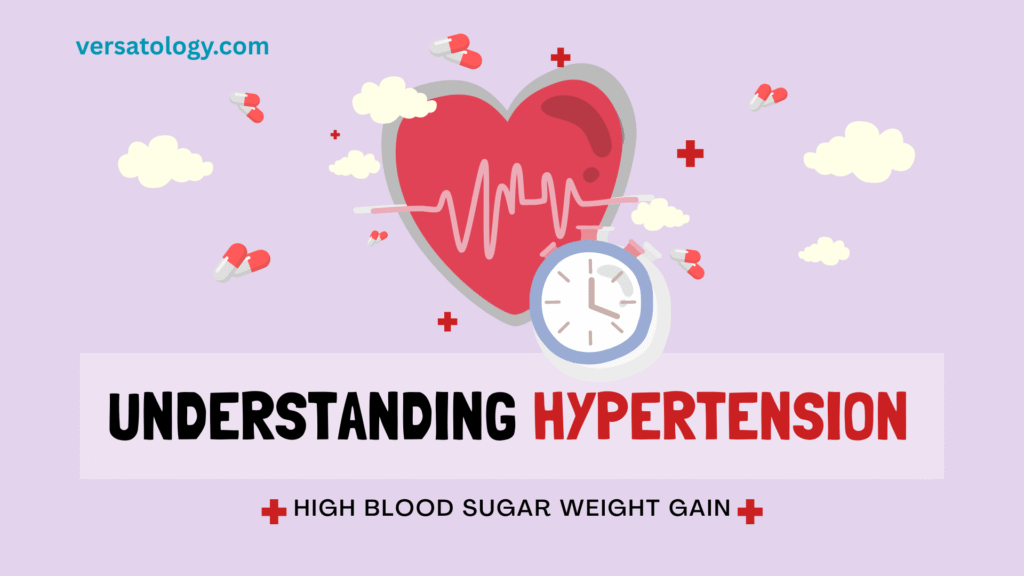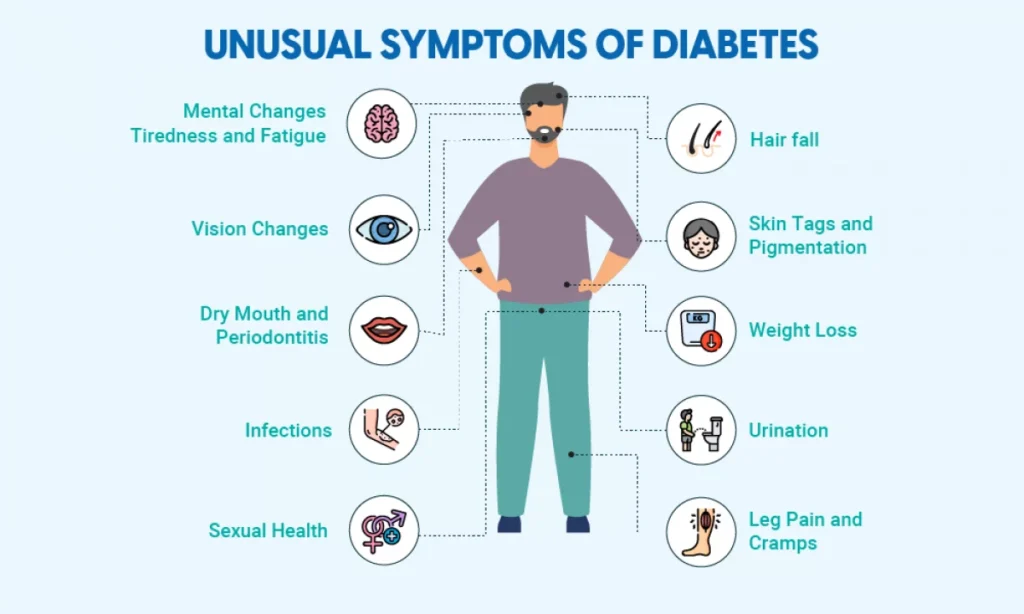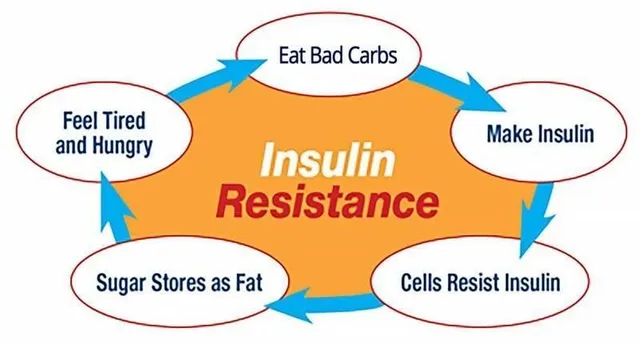Introduction
High blood sugar weight gain is one of the most overlooked health challenges in modern lifestyles. While many associate high blood sugar with diabetes alone, its link to unwanted weight gain is often underestimated. For countless individuals, weight gain from high blood sugar happens slowly, making it difficult to notice until it becomes a persistent issue.
This article will explain can high blood sugar cause weight gain, explore common symptoms, highlight proven causes, and provide effective solutions to help regain balance.

High Blood Sugar Weight Gain Explained
High blood sugar weight gain occurs when glucose levels stay consistently elevated, forcing the body to store excess energy as fat. Over time, this disrupts the metabolism, leading to stubborn fat retention.
The link between blood sugar and weight gain is clear: elevated glucose triggers more insulin production, and insulin promotes fat storage. So yes, the answer to can high blood sugar cause weight gain is simple — absolutely.
Symptoms: High Blood Sugar and Weight Changes
Many individuals experience high blood sugar symptoms and weight changes without realizing the connection.
Key signs include:
- Sudden or unexplained belly fat accumulation
- Increased appetite, especially sugar cravings
- Constant fatigue despite eating enough
- Digestive discomfort and bloating
These symptoms often mimic other conditions, which is why high blood sugar weight gain can be misdiagnosed until it becomes more severe.

High Blood Sugar and Belly Fat: The Stubborn Link
The relationship between high blood sugar and belly fat is well-documented. Excess glucose in the bloodstream encourages fat storage around the abdominal area, also known as visceral fat.
Poor glucose control combined with sedentary habits, processed foods, and stress makes belly fat especially difficult to reduce. This explains why so many struggle with midsection weight despite diet efforts.
Insulin Resistance and Weight Gain
One of the main drivers of weight gain from high blood sugar is insulin resistance. When the body’s cells stop responding to insulin, glucose lingers in the bloodstream, forcing the pancreas to release even more insulin.

This cycle not only worsens blood sugar levels but also makes it easier for the body to store fat. Insulin resistance is central to type 2 diabetes and one of the biggest factors behind high blood sugar weight gain.
Blood Sugar Spikes and Weight Gain
Frequent blood sugar spikes and weight gain often go hand in hand. Spikes lead to sudden energy crashes, causing cravings for high-carb or sugary foods. This creates a cycle of overeating, fat storage, and further glucose instability.
Stabilizing blood sugar is one of the most effective strategies to break this cycle.
High Blood Sugar and Obesity Risk
Uncontrolled blood sugar significantly increases long-term obesity risk. High glucose levels, combined with a sluggish metabolism, promote weight gain that becomes harder to reverse over time.
Additionally, obesity linked to high blood sugar raises the likelihood of chronic conditions like heart disease and type 2 diabetes. This makes addressing high blood sugar weight gain even more urgent.
How High Blood Sugar Affects Metabolism
Another hidden challenge is how high blood sugar affects metabolism. Elevated glucose levels slow down the body’s ability to burn fat efficiently.
This leads many to ask: does high blood sugar slow metabolism? The answer is yes. Slow metabolism makes weight loss harder, even when eating fewer calories or exercising regularly.
Effective Fixes for High Blood Sugar Weight Gain
The good news is that high blood sugar weight gain can be managed through lifestyle and medical strategies.
Proven solutions include:
- Dietary fixes: Opt for low-glycemic foods, whole grains, and fiber-rich meals.
- Exercise: Regular activity helps improve insulin sensitivity.
- Stress control: Reducing cortisol helps stabilize blood sugar.
- Hydration: Drinking water prevents glucose spikes.
- Medical care: Monitoring blood sugar and following treatment plans.
Adopting natural ways to balance blood sugar for weight control also helps in preventing weight gain from high blood sugar.
For practical guidance, check out our internal guide: Healthy Diet Tips for Blood Sugar Control
FAQs on Blood Sugar and Weight Gain
Q1: Can high blood sugar cause weight gain?
Yes, elevated glucose encourages fat storage, especially around the abdomen.
Q2: Does high blood sugar slow metabolism?
Yes, it disrupts fat-burning processes and slows down overall metabolism.
Q3: Is high blood sugar linked to increased appetite?
Yes, poor glucose regulation often leads to cravings and overeating.
Q4: How can you prevent weight gain from high blood sugar?
Balanced meals, exercise, stress management, and medical care are key to preventing weight gain from high blood sugar.
Conclusion
In summary, high blood sugar weight gain is a growing issue that can no longer be ignored. From weight gain from high blood sugar and insulin resistance to cravings and slow metabolism, the impact on health is significant.
The good news? With proven fixes like diet adjustments, exercise, and lifestyle changes, natural ways to balance blood sugar for weight control are possible. Preventing weight gain from high blood sugar is within reach when individuals commit to consistent health management.
For anyone noticing symptoms, it’s always wise to consult a doctor or dietitian for a personalized approach.
Related Articles
Gallstones and Digestion Problems
Can Gallbladder Issues Cause Weight Gain?
Can Gallstones Cause Weight Gain?

